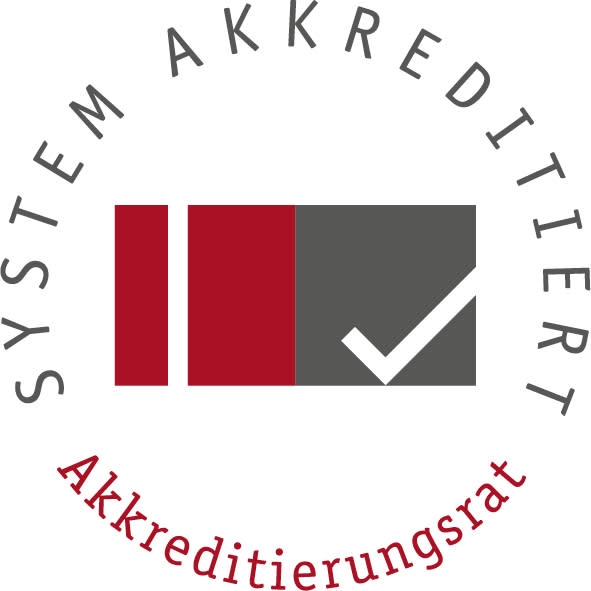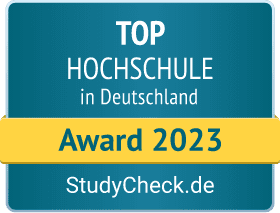Democracy education is primarily the task of the education system - according to people in Germany
The German education system is primarily responsible when it comes to teaching democratic values. According to a representative IU short study, 59.0 per cent of people in Germany believe this to be the case. For around half of those surveyed, the parental home and the media (e.g. newspapers, news) are also primarily responsible for educating people about democracy.
But why is democracy education so important in the first place? "Making informed decisions at the ballot box depends on people being able to make political judgements." says Prof. Dr Stefanie Kessler, Professor of Social Work at IU International University and an expert in learning democracy and political education. Many respondents share this opinion: 83.6 percent think that education can help people make informed decisions in elections, and 79.0 percent believe that a lack of education can pose a threat to democracy.
However, democracy education has its limits: Two thirds state that education alone does not guarantee a functioning democracy. This is why the IU short study also looks at how satisfied people in Germany are with their democracy in general, how they participate in politics, and the advantages and challenges they perceive in the democratic system. The fact is: 92.5 percent of people in Germany consider the preservation of democracy to be either very or fairly important.
View the study in PDFDemocracy and democracy education: the facts
of people in Germany are generally either very or fairly satisfied with democracy in Germany.
of respondents consider the preservation of democracy in Germany to be either very or fairly important.
is the most frequently mentioned challenge for a democracy.
think: Education can help one make informed decisions in elections.
say a lack of education can be a threat to democracy.
believe that the education system is primarily responsible for teaching democratic values.
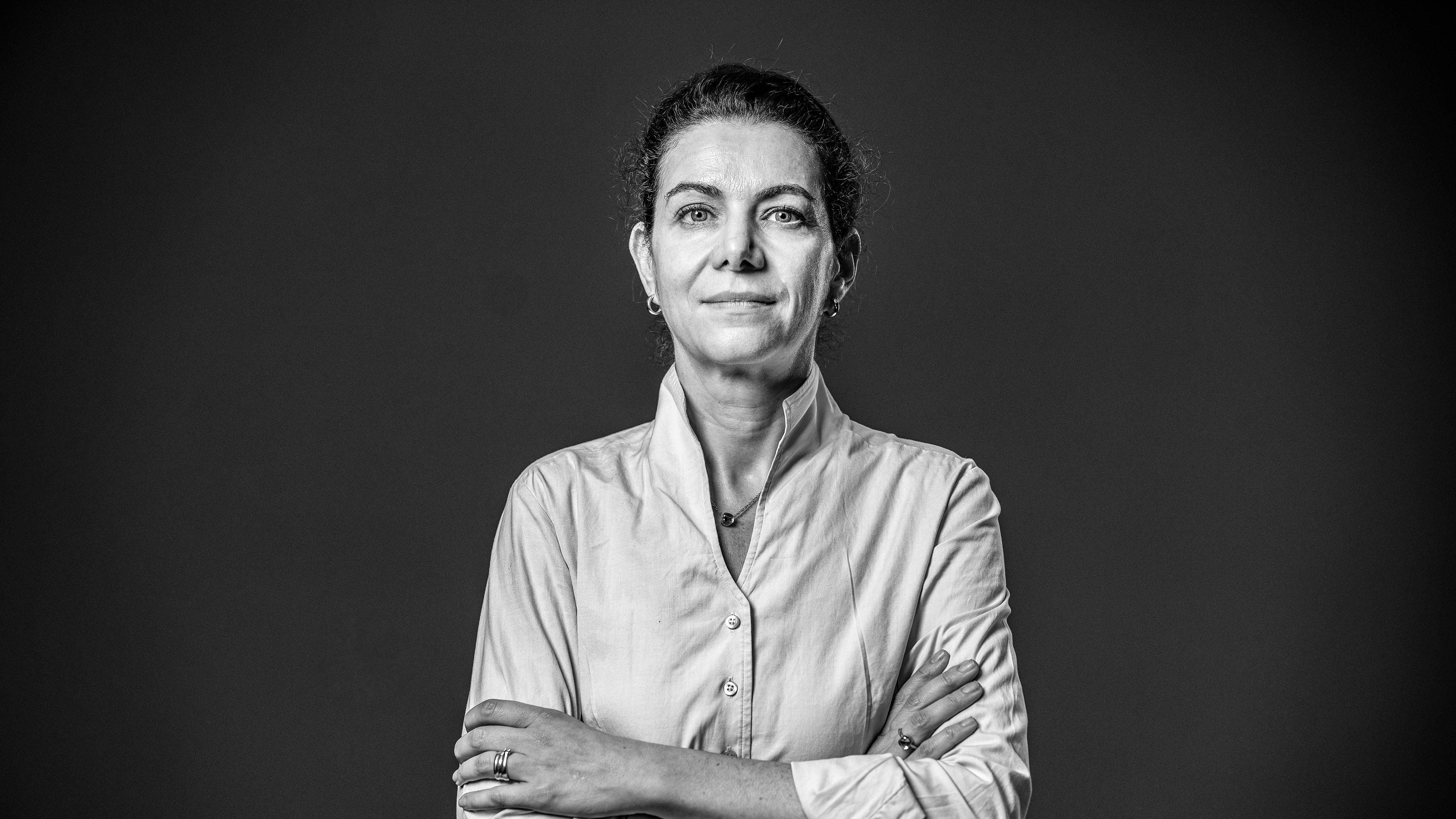
Democracy needs political education and participation
"The results of the study should make us think and encourage us to question why so many people are dissatisfied with democracy in Germany. It is important to reinforce the value and appreciation of democracy in society. This can be achieved through education, open discussion and active participation in democracy. It is crucial to make everyone aware of the value and importance of democracy and to encourage people to get involved."
Prof. Dr Alexandra Wuttig
Chancellor of IU International University of Applied Sciences and Professor of Innovation and Entrepreneurship
Democracy education: Definition
"Democracy education is a process through which people learn basic democratic values such as freedom, equality, justice, solidarity and emancipation. It includes imparting knowledge about political systems, civil rights and duties as well as promoting critical thinking and political participation. Democracy education takes place in school classes or everyday life, for example through social media, experiences of democracy in educational and work structures, as well as through the experience of being a political subject, for example at demonstrations or in participation processes. The last two points in particular show that genuine experiences of democracy are just as important as acquiring knowledge and skills. They enable people to experience self-efficacy and recognise that their interests and ideas are taken seriously."
Prof. Dr Stefanie Kessler
Professor of Social Work at IU International University of Applied Sciences and expert in learning democracy and political education
Living democracy, strengthening democracy: What people in Germany think
Advantages, challenges, political education: The representative IU short study looks at democracy in Germany from many different angles - and captures a tense mood. Here are some facts and opinions.
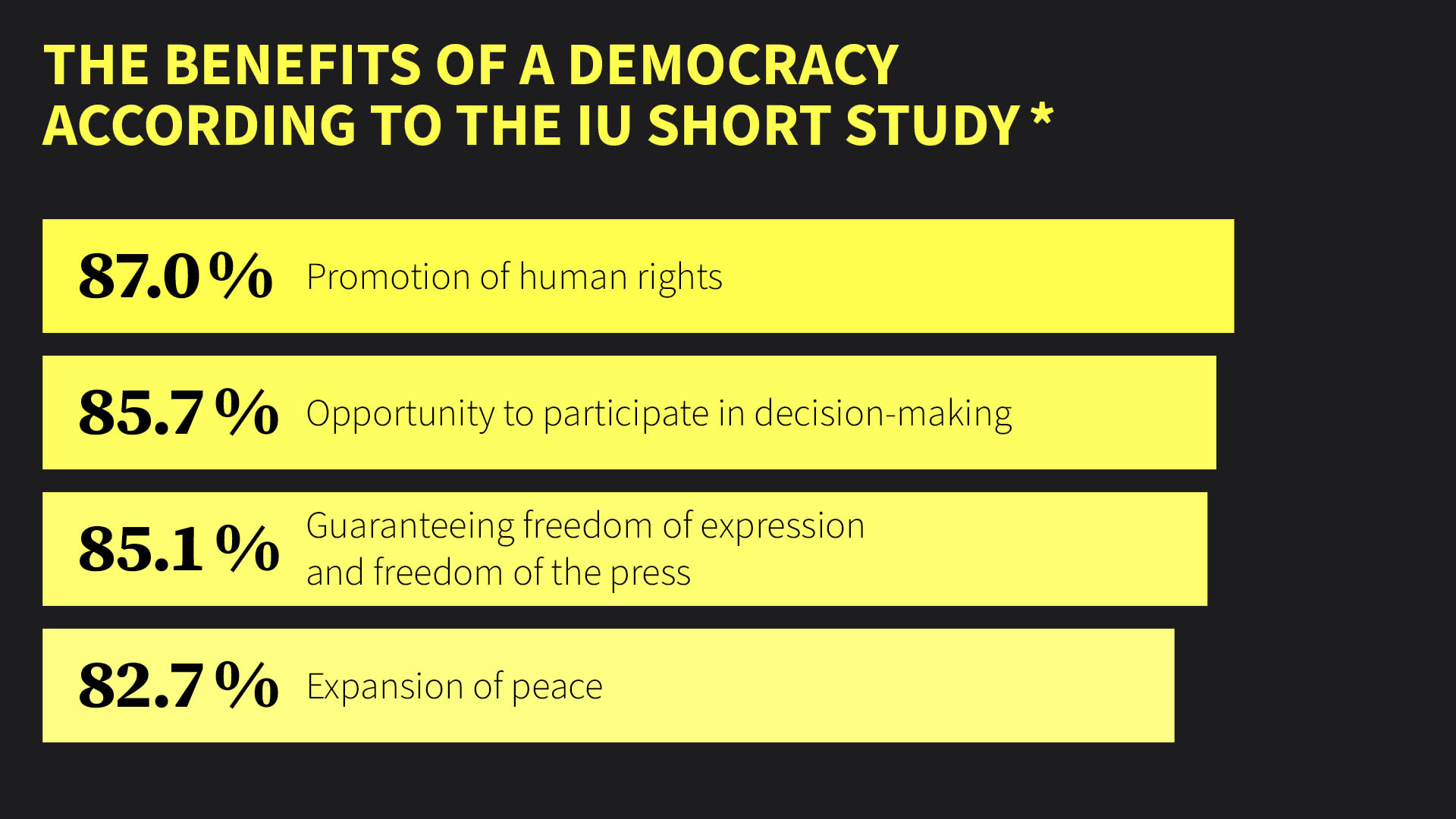
It is worth defending democracy
For more than 9 out of 10 people in Germany, the preservation of democracy in Germany is either very or fairly important. Respondents view the advantages of democracy as: the promotion of human rights, opportunitiy to participate in decision-making, guaranteeing freedom of expression and freedom of the press as well as the expansion of peace.
*Excerpts from the answers to the question: "What do you think are the advantages of a democracy?" (Only respondents who answered “Major advantage” and “Somewhat of an advantage” on a scale of 1 to 5.)
Source: IU short study "Democracy and Education"
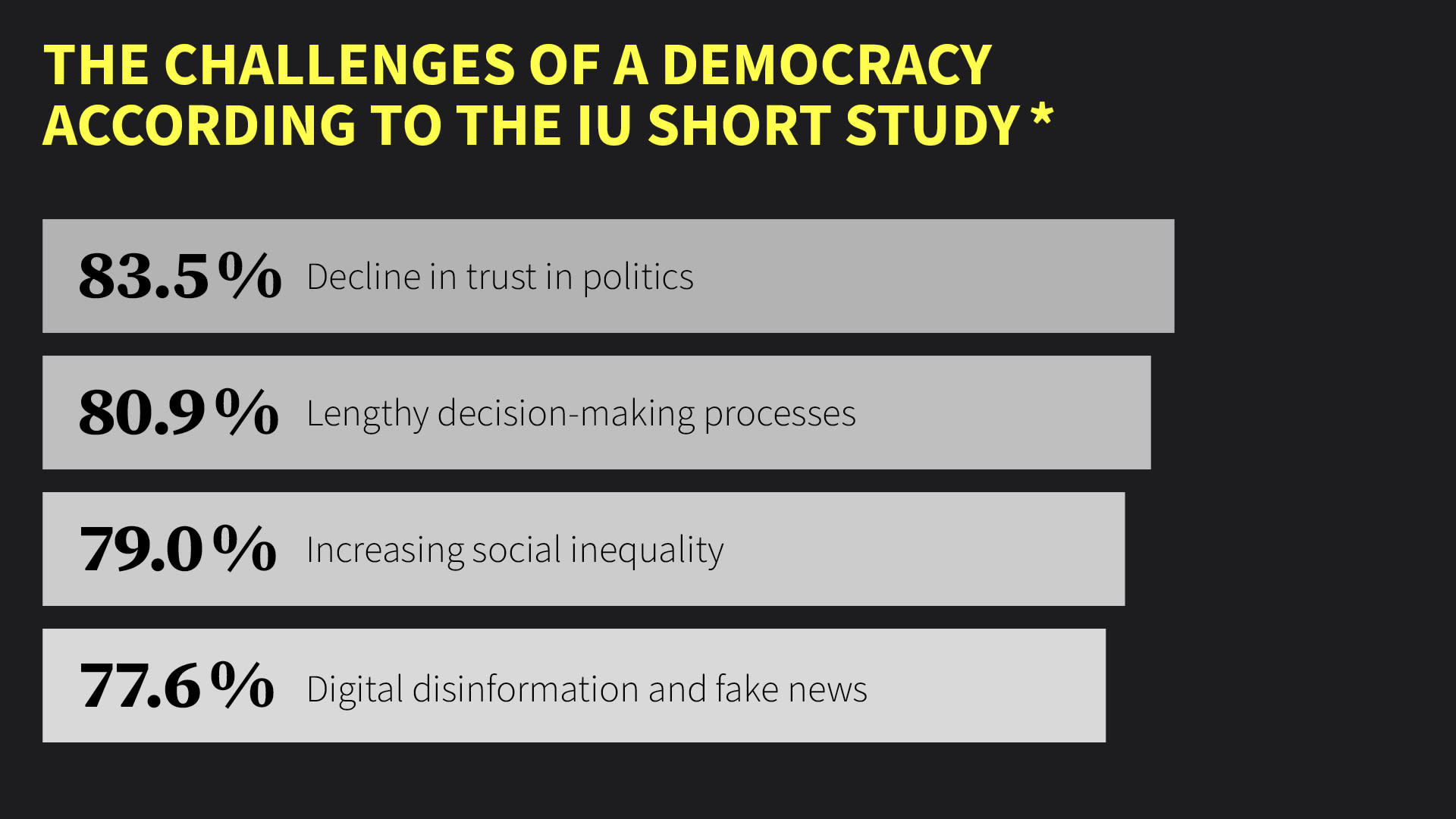
Declining trust, increasing disinformation? The challenges facing democracy
People in Germany most frequently cite the following challenges to democracy: decline in trust in politics, lengthy decision-making processes and increasing social inequality. Three quarters of respondents believe that, digital disinformation and fake news can put a strain on democracy.
*Excerpts from the answers to the question: "What do you think are the challenges facing democracy?“ (Only respondents who answered “Major challenge” and “Somewhat of a challenge” on a scale of 1 to 5.)
Source: IU short study "Democracy and Education"
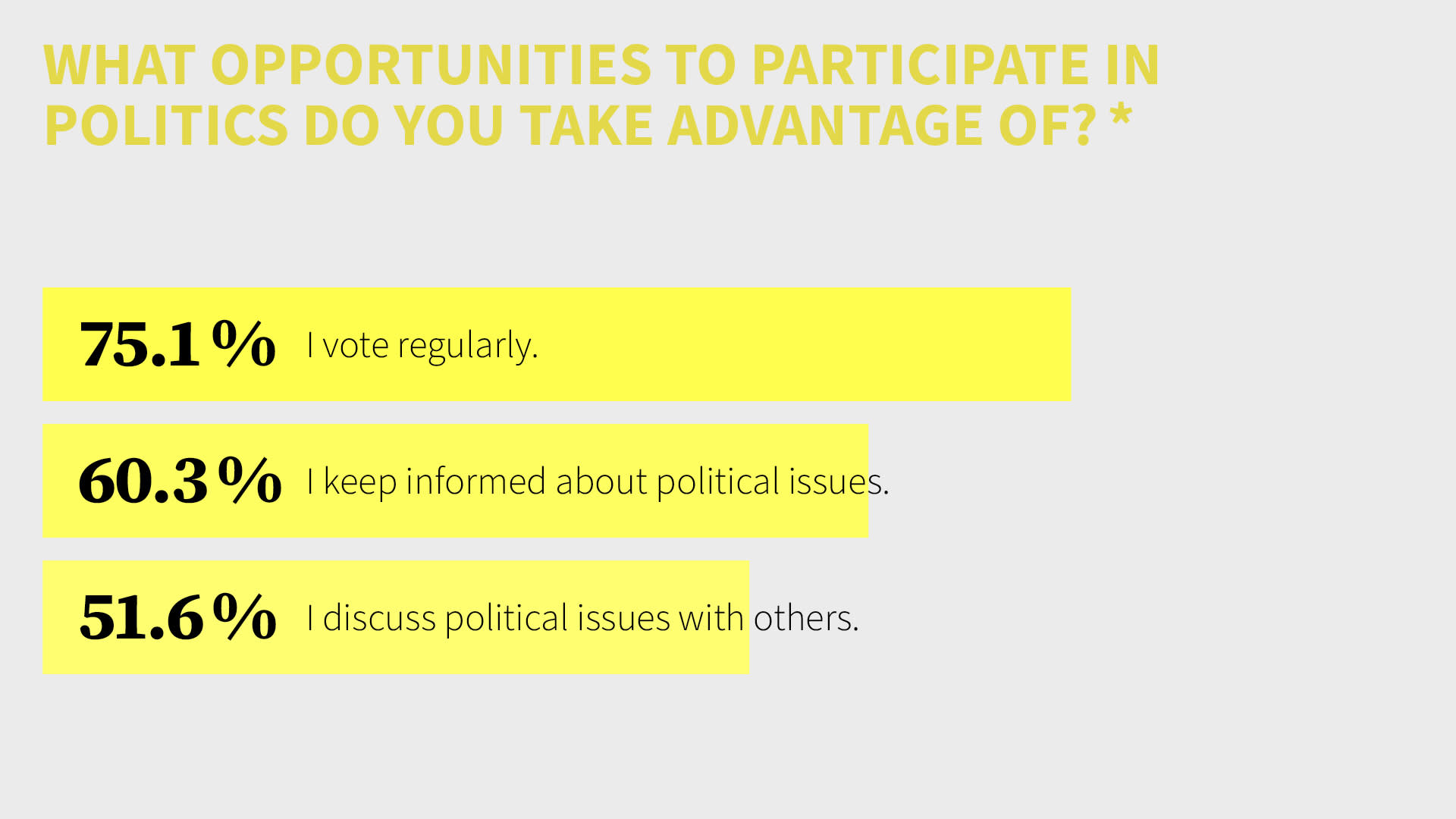
Political participation: Many people vote and inform themselves
Three quarters of people in Germany vote regularly - and over half actively inform themselves about or discuss political issues with others. In contrast, only 16.1 percent take part in demonstrations or protests. 6.1 percent are personally involved in a political organisation or institution.
*Excerpts from the answers to the question: "What opportunities to participate in politics do you take advantage of?“
Source: IU short study "Democracy and Education"
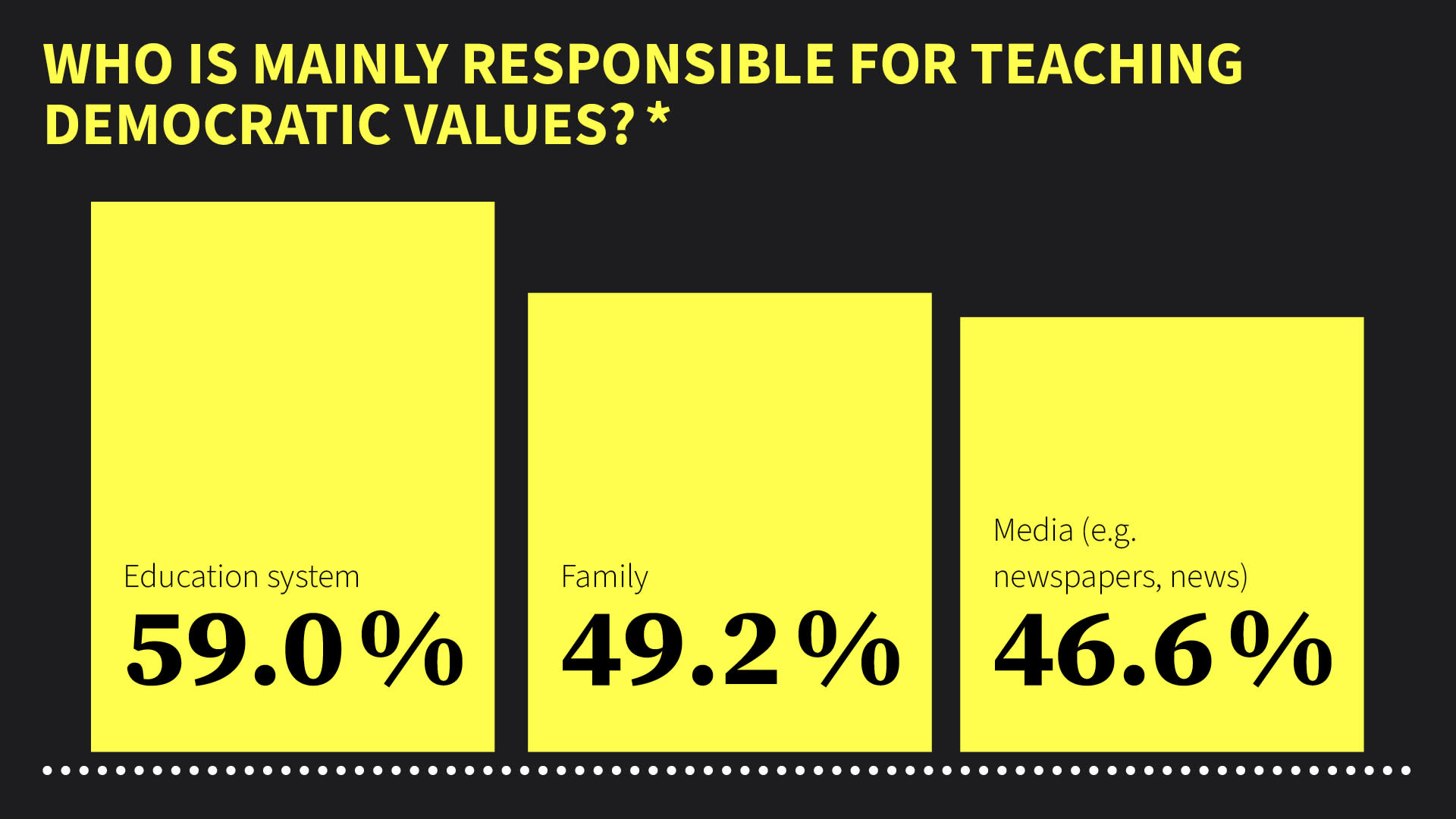
Democracy education: schools, parents and the media have the main responsibility
Democracy needs education - and schools in particular should provide this. 59.0 percent of people in Germany believe that schools should play a key role in this. The parental home and the media also bear significant responsibility for teaching democratic values. Strikingly, respondents aged 16 to 25 (Generation Z) consider the media significantly more important than the parental home.
*Excerpts from the answers to the question: "In your opinion, who is mainly responsible for teaching democratic values?“
Source: IU short study "Democracy and Education"
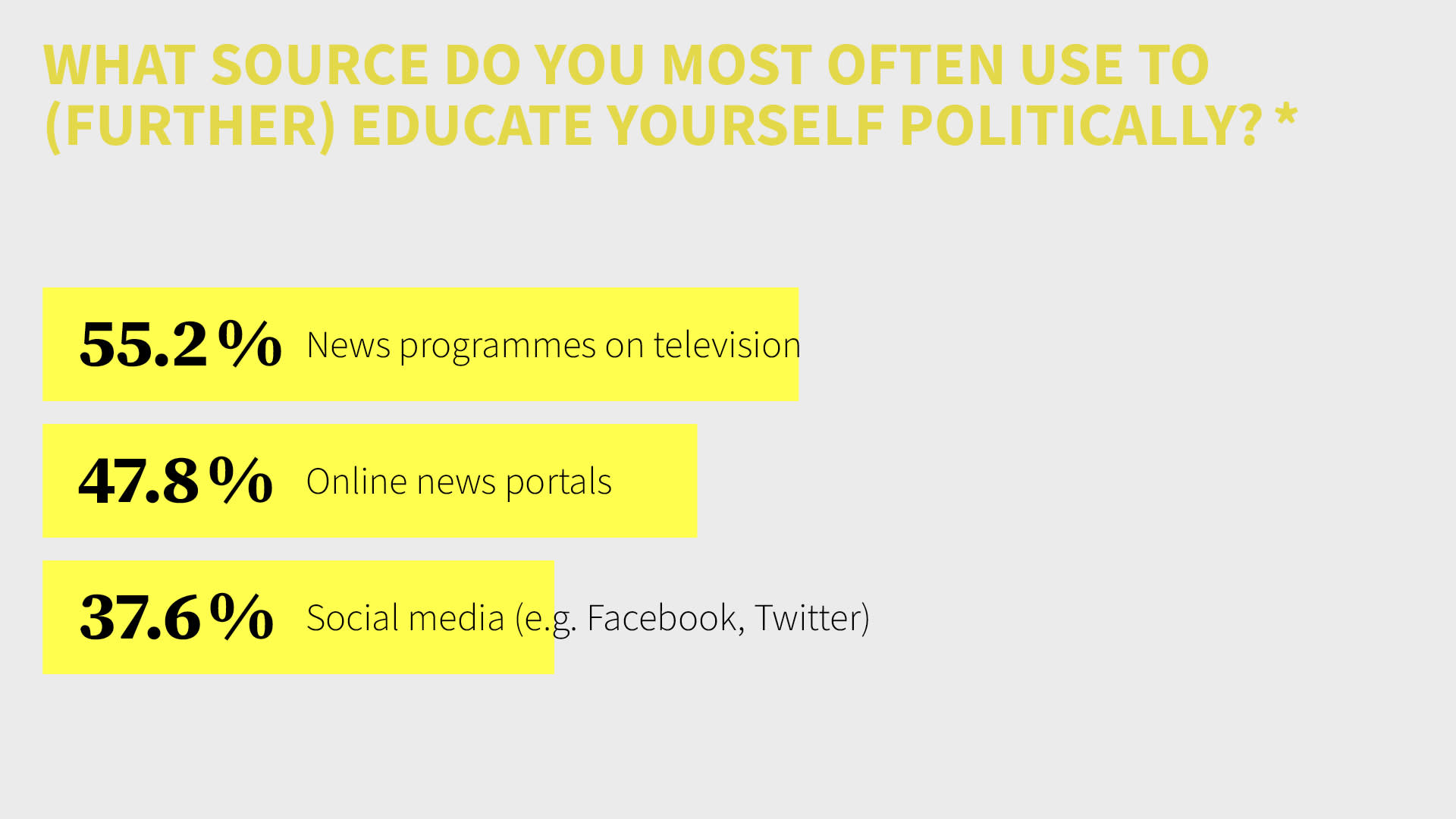
Sources of information: Young people primarily use social media
Television news programmes are still the most important source of information for political education for the majority of people in Germany, followed by online news portals and social media. However, for Generation Z (16 to 25-year-olds), the picture is reversed: most of them primarily use social media for their political education and further learning.
*Excerpts from the answers to the question: "What sources do you most often use to (further) educate yourself politically?"
Source: IU short study "Democracy and Education"
What our experts say
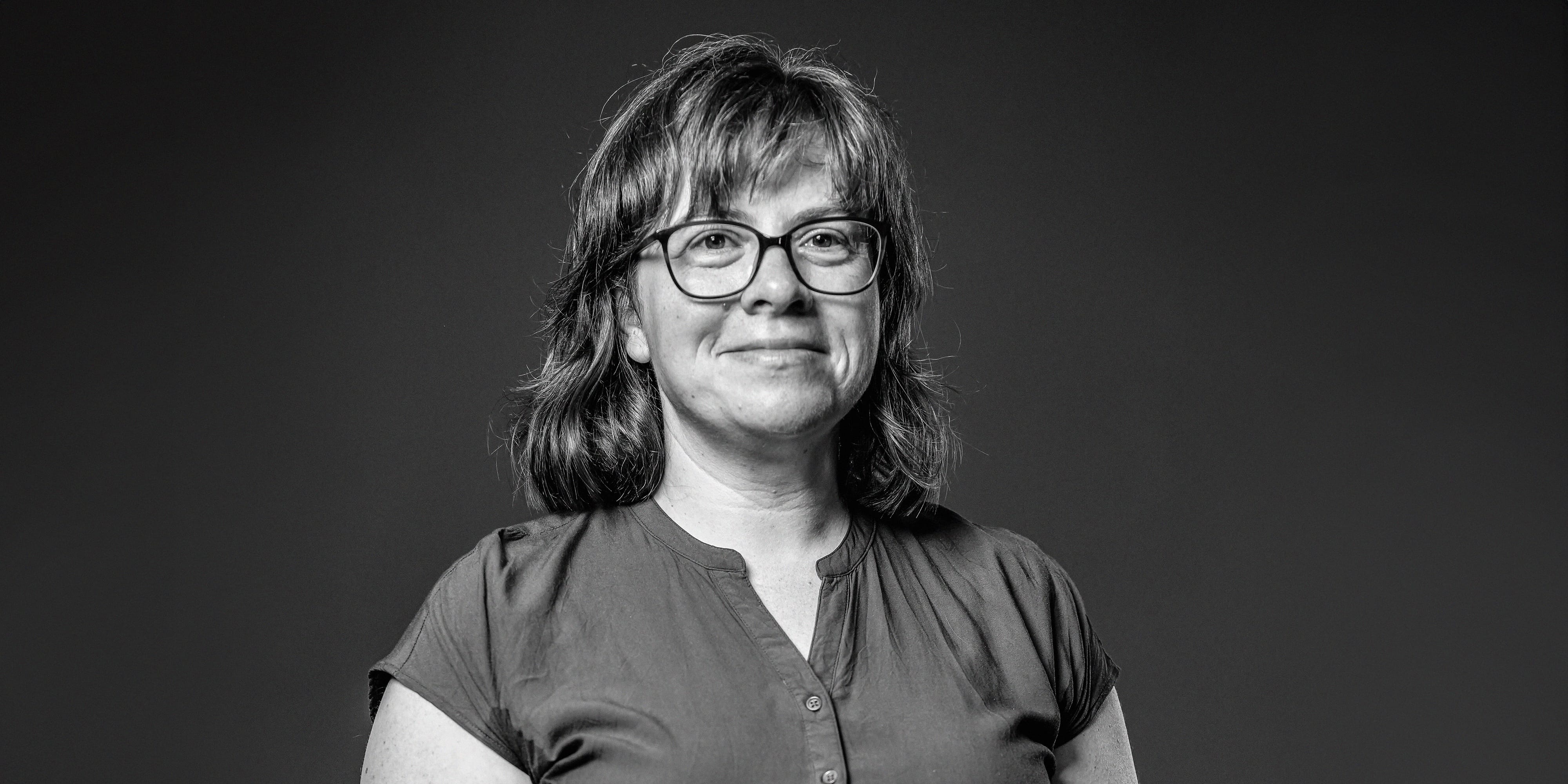
Prof. Dr Stefanie Kessler
Professor of Social Work at IU International University of Applied Sciences and expert in learning democracy and political education
"Making informed decisions at the ballot box depends on people being able to make political judgements. To do this, they need to reflect on their own values, consider them in a political context and align them with other value systems. This requires not only a high level of self-reflection, but also knowledge of the political system, the interests that various parties represent, and the processes of decision-making, i.e. policy- making.“

Prof. Dr Alexandra Wuttig
Chancellor of IU International University of Applied Sciences and Professor of Innovation and Entrepreneurship
"Most people in Germany see the decline in trust in politics as a challenge facing democracy. Therefore, we need to find ways to make politics interesting and relevant to people’s everyday lives. This can be achieved by providing more opportunities for participation, more transparent communication and by involving the population more. Political education needs to be improved to promote interest and understanding.“
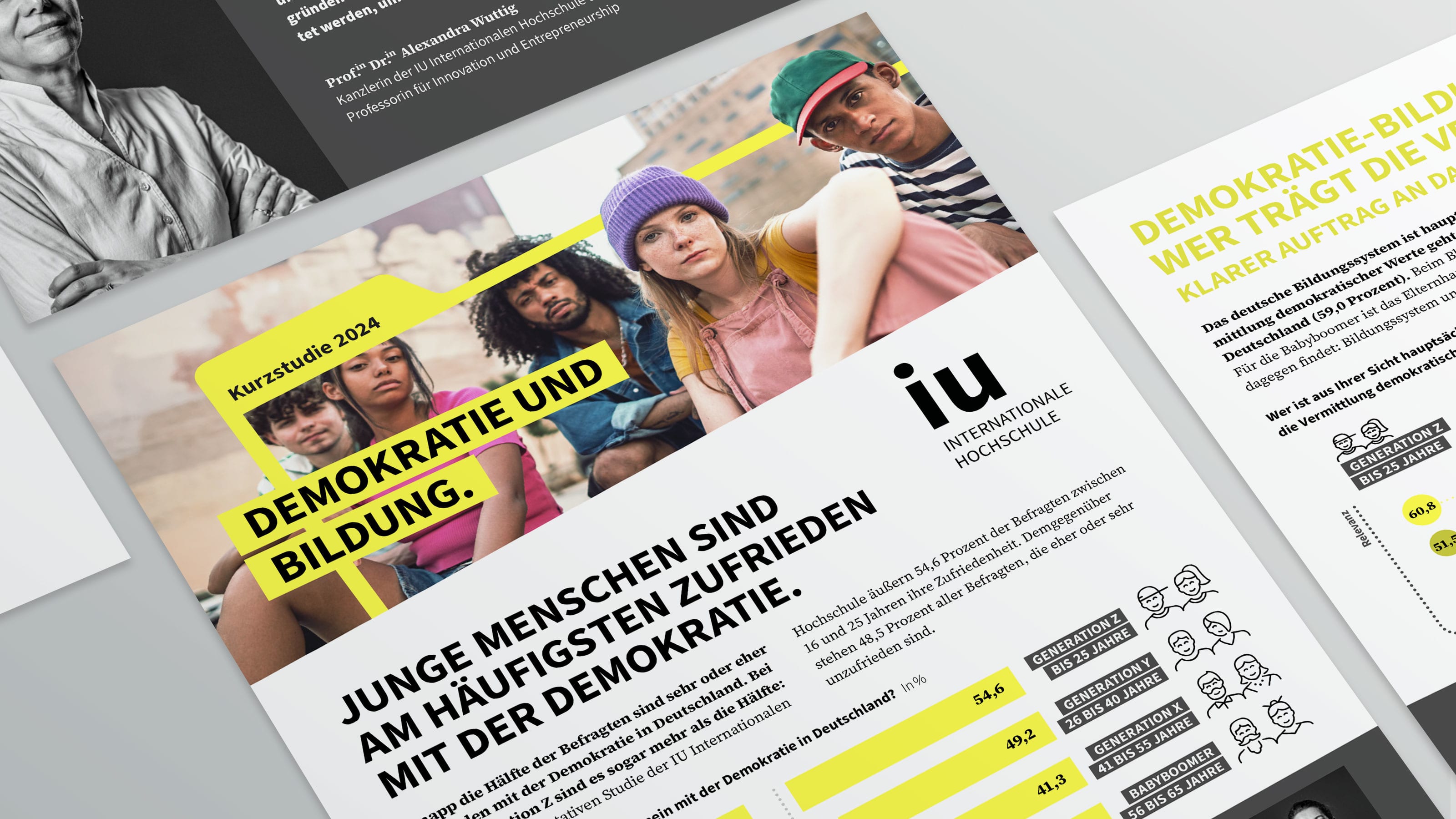
IU short study on democracy and democracy education
How satisfied are people in Germany with democracy - and who is responsible for political education? Facts and opinions in the IU short study.
View the study in PDFMore info on the IU Study
What you get for free
Information on study content & electives
Information on career prospects
Information on financing options



